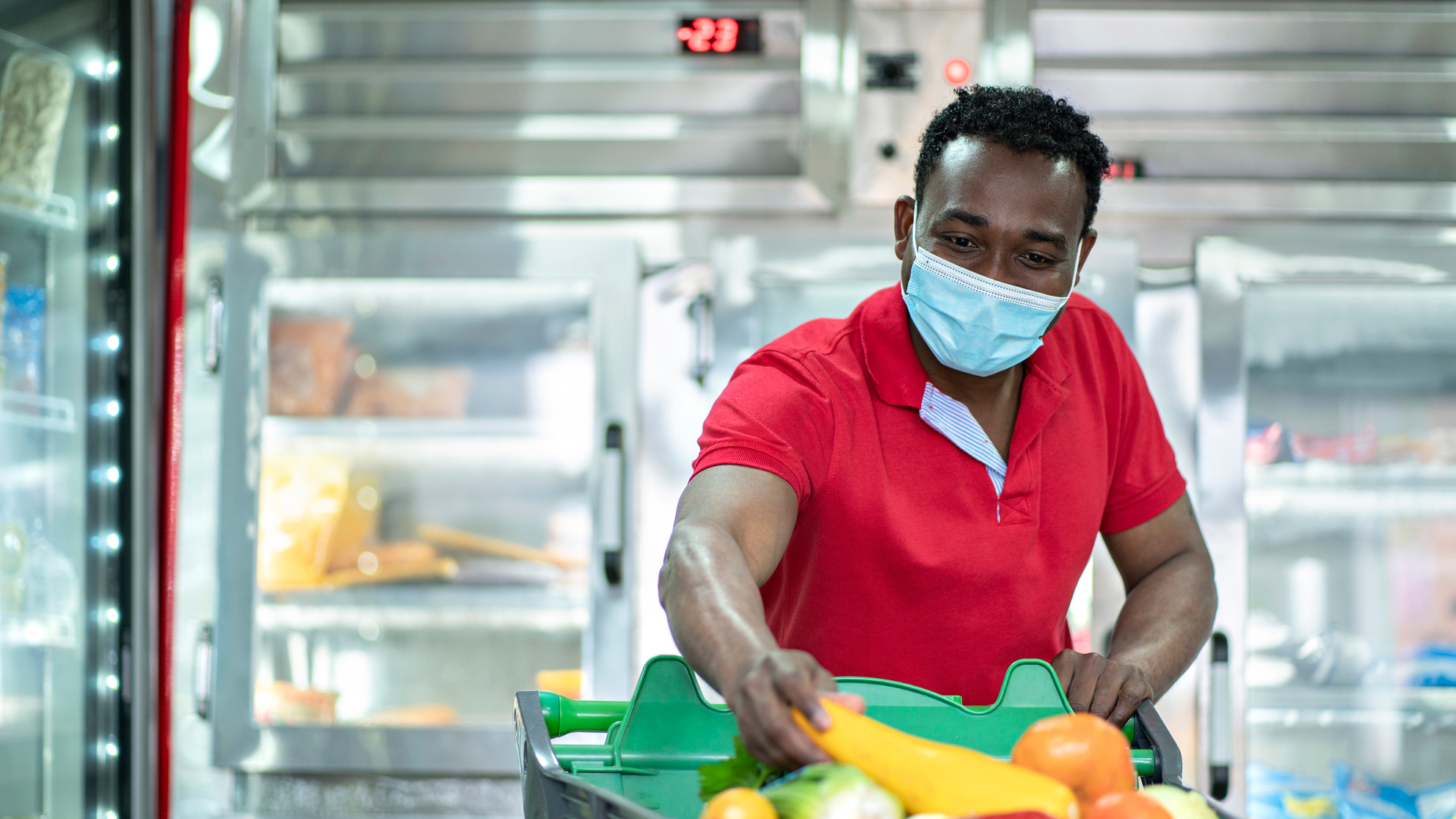COVID-19: Should you wear a mask even if you're fully vaccinated?
So you're fully jabbed. Should you continue to wear a mask? We look at the science


It's still a strange time. Earlier this year, as vaccine programmes rolled out across the world, the coronavirus pandemic really felt like it was in retreat. Then the "hypertransmissable" delta variant reared its ugly head, and no-one seems to be sure what to do. Restrictions are due to lift in the UK, but headlines report the coronavirus cases creeping up again. Likewise, there's a huge disparity between states in the US, some of whom are vaccinated, some aren't.
If your local gyms have reopened, should you flock back, or double-down on exercising at home with kit like the best treadmill or best adjustable dumbbells? And when in public spaces, should you still be wearing a mask, even if you've been vaccinated?
We know masks work to prevent the spread of coronavirus primarily due to "trapping" droplets, as this laser spray analysis demonstrates:
In this experiment, investigators used a laser in a darkened box to visualize approximately 300 droplets that were generated during speech. #COVID19 #SARSCoV2 pic.twitter.com/bLaX9ORDT9April 23, 2020
Therefore, the purpose of wearing a mask is primarily to keep droplets "in" as well as keeping them out. If everyone wears a mask, it's easier to contain the spread of COVID.
NBC reported last week that the new delta variant, said to be 60% more easily transmitted, accounts for one-quarter of all new cases. The variant was first spotted in the UK, and it's not well-known if it can effectively "bypass" a vaccine to cause harm to a vaccinated person. However, a study published in the journal Nature found a single dose of vaccine to be just 10% effective against the delta variant.
Vaccines work by helping the body to produce COVD-fighting antibodies. However, after studying blood samples of those who had their first dose but not their second, the researchers found just 10% of samples had developed the necessary antibodies.
It's not well known how well a second dose protects against the new, harmful Delta variant. However, the American CDC recently reported cases of COVID up 10% in the US. The UK recently reached 30,000 COVID cases, a number not seen since the post-holiday peak in January – however, thanks largely to the vaccine rollout, deaths are much lower than that period earlier in the year.
Start your week with achievable workout ideas, health tips and wellbeing advice in your inbox.
Vaccinations act as a layer of protection against both getting COVID and suffering from its effects. But it's not impossible to get COVID while vaccinated, and masks act as a barrier between your nostrils and mouth and the rest of the world. By wearing one – just in case – you could prevent someone else getting COVID, and if they're not vaccinated, the effects could be more severe for them.
Matt Evans is an experienced health and fitness journalist and is currently Fitness and Wellbeing Editor at TechRadar, covering all things exercise and nutrition on Fit&Well's tech-focused sister site. Matt originally discovered exercise through martial arts: he holds a black belt in Karate and remains a keen runner, gym-goer, and infrequent yogi. His top fitness tip? Stretch.
